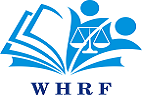FIJI
The authorities continued to stifle criticism and restrict the right to freedom of expression. New allegations of torture and other ill-treatment by the security forces surfaced throughout the year. Some cases resulted in disciplinary actions and charges against officers involved. Women and girls continued to experience high rates of gender-based violence. Fiji’s response to the COVID-19 pandemic failed to protect or offer targeted financial support to women and those working in informal sectors, increasing the risks of poverty and financial hardship for already marginalized individuals.
Background
The adoption of Fiji’s UPR outcome in March exposed gaps in human rights protection, including the need to pass a comprehensive anti-discrimination law, protect the right to freedom of expression, and take further action to address gender inequality.1 Fiji continued to be particularly vulnerable to adverse impacts of climate change, including rising sea-levels.
Freedom of expression and peaceful assembly
Fiji reported its first COVID-19 cases in late March and suppressed the spread of the virus by relying on restrictions on free movement and public gatherings, enforced by arrests and hefty fines.2
Authorities threatened to charge protesters at the University of the South Pacific after the Vice Chancellor was suspended for exposing corruption and misuse of funds.3 He was later reinstated by the regional university’s executive council.
In June, trade union leader Felix Anthony was charged and appeared in court under the Public Order Act for statements made in support of workers’ rights.
Torture and other ill-treatment
In January, Fiji notified the UN of its decision to withdraw the reservation made upon ratification of the Convention Against Torture in respect to the definition of torture. Reservations remained in place in relation to recognizing the right to compensation and the Committee Against Torture receiving complaints. Widespread immunities continued to exist under national laws.
In June, four police officers were charged with causing grievous bodily harm for allegedly throwing a man off a bridge in Tailevu in April, with a fifth officer charged for interference with witnesses.
Four former prison officers claimed in May that the Prisons Commissioner directed or ordered the torture and other ill-treatment of prisoners, including beatings, sleep deprivation and isolation. There was no investigation into these allegations by year’s end.
Violence against women and girls
Women and girls continue to experience high rates of gender-based violence. The authorities failed to take such crimes seriously.
A former national team rugby player convicted for rape and sentenced to eight years in prison in October 2019 was granted permission to participate in rugby training in July while serving his sentence. Women’s rights organizations condemned the lack of accountability and transparency and called for an independent investigation.
